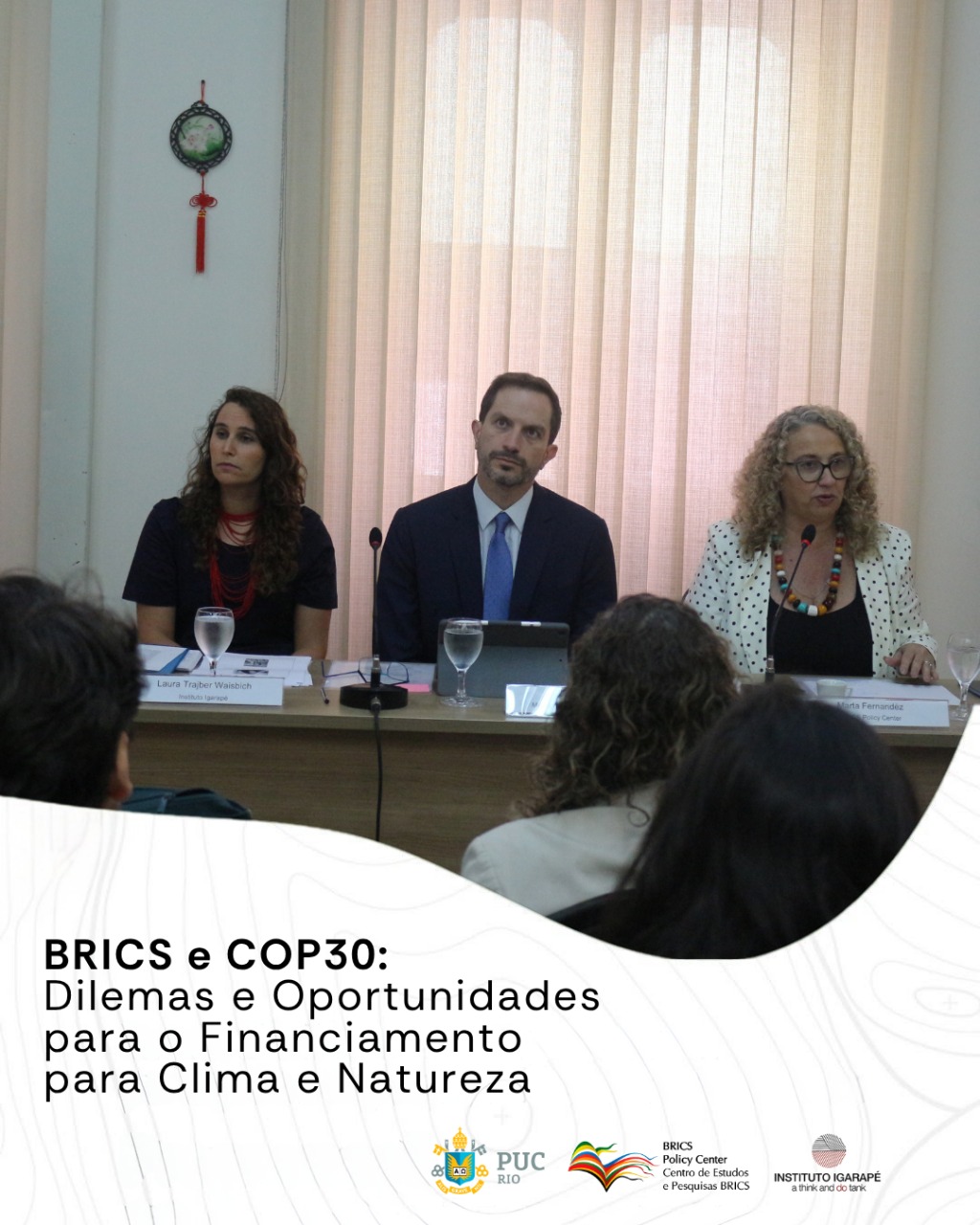
- This event has passed.
BRICS and COP30: Dilemmas and Opportunities for Climate and Nature Financing
2 de June de 2025 | 08:00 - 17:00

On May 23, 2025, the BRICS Policy Center and the Igarapé Institute held the webinar “BRICS and COP30: Dilemmas and Opportunities for Climate and Nature Financing,” bringing together experts, government representatives, civil society, and academia to discuss the challenges and opportunities BRICS countries face regarding climate financing and biodiversity protection, in preparation for COP30, which will be hosted in Brazil later this year.
The first panel, moderated by the Director of the BRICS Policy Center, Prof. Marta Fernández, and Laura Trajber Waisbich of the Igarapé Institute, was titled “Climate and Nature Financing in BRICS – Challenges and Perspectives.” Participants included Daniel Leitão from the Ministry of Foreign Affairs; Gustavo Westmann from the Secretariat for International Affairs of the Presidency; and Walter Desiderá from IPEA. The discussion addressed the main obstacles faced by the bloc’s countries in accessing resources for climate and biodiversity, highlighting the importance of innovative financial mechanisms and stronger integration between these two agendas.
The second panel, moderated by the Deputy Director of the BPC, Prof. Maria Elena Rodriguez, focused on “Pathways to a Unified BRICS Position at COP30.” The panel discussed avenues for joint BRICS action in international climate negotiations, aiming to build a unified position for COP30. It also emphasized the importance of strengthening the bloc’s climate diplomacy, promoting greater alignment between national agendas and global commitments. The discussion also underscored the need to coordinate common interests among developing countries in order to amplify the voice of the Global South and promote a just and inclusive transition. Panelists included Prof. Paula Sandrin from the BRICS Policy Center’s Socioenvironmental Platform; Eduardo Viola from FGV; Lucca Rizzo from the Climate and Society Institute; and Timer Manurung from Auriga Nusantara.
The third panel, moderated by BPC researcher Prof. Anna Saggioro Garcia, focused on “The Role of Civil Society and Academia in Climate Financing.” Speakers Priscilla Negreiros from the Climate Policy Initiative; Laura Trajber Waisbich from the Igarapé Institute; Jingwei Zhang from the Global Environmental Institute; and Srinivas Krishnaswamy from the Vasudha Foundation highlighted the importance of social participation, knowledge production, and transparency in building effective climate finance policies. Successful examples of collaboration between different sectors of society were also presented.
The event reinforced the strategic role of BRICS in addressing the climate crisis and underscored the relevance of COP30 as a historic opportunity to promote a new agenda for climate and environmental justice, grounded in international cooperation and the strengthening of Global South voices.

